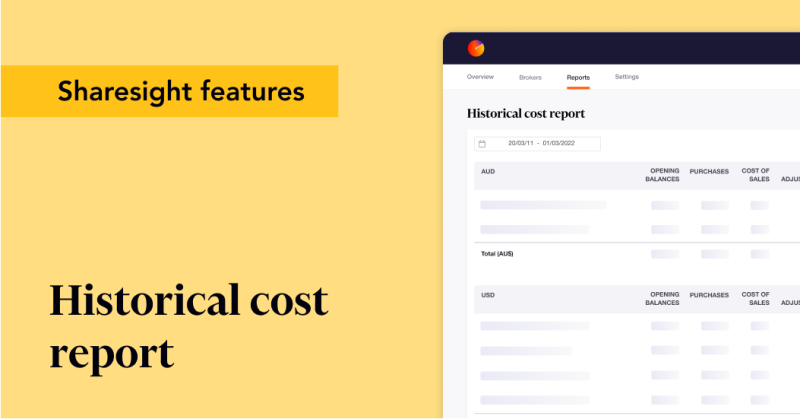Types of fixed income funds
Disclaimer: This article is for informational purposes only and does not constitute a specific product recommendation, or taxation or financial advice and should not be relied upon as such. While we use reasonable endeavours to keep the information up-to-date, we make no representation that any information is accurate or up-to-date. If you choose to make use of the content in this article, you do so at your own risk. To the extent permitted by law, we do not assume any responsibility or liability arising from or connected with your use or reliance on the content on our site. Please check with your adviser or accountant to obtain the correct advice for your situation.
Investing in fixed income funds is one option for investors looking for a steady income stream with less risk than individual stocks. They are typically made up of bonds and other debt securities and pay you a predetermined amount on a fixed schedule (although these payments may be minimal). To learn more about the different types of fixed income funds, as well as some of the pros and cons of investing in this asset type, keep reading.

What are fixed income funds?
Fixed income funds are a class of assets that deliver payments on your investment at fixed dates. Fixed income fund payments are pre-determined and credit a fixed interest rate to investors, upon maturity of the investment.
Fixed income funds are widely considered to be a stable and reliable investment, with some fixed income funds even returning your principal investment in addition to interest upon maturity. The most common types of fixed income products are government and corporate bonds, treasury bills, treasury notes, and treasury bonds, but you can also buy into the asset class by purchasing ETFs.
Types of fixed income funds
There are three main types of fixed income funds:
Debt fund
Debt funds deliver fixed returns, investing your money in a range of financial instruments. This investment is usually made up of a pool of ETFs or mutual funds, where the core holdings are fixed-income investments. Debt funds can be broken into two types: monthly income plans that invest in both debt instruments and equity, or general debt funds that are made up of debt instruments of government and/or private organisations.
Exchange-traded funds (ETFs)
ETFs generally track a specific index and are as their name implies, funds that trade on the stock exchange. ETF providers build ETFs based on a particular methodology and investors purchase shares in that fund. Because ETFs invest in a basket of securities, rather than a specific share or stock, they carry a slightly lower risk than dealing in individual stocks.
Money market funds
"Money market" refers literally to buying and selling money, specifically short-term debt products like overnight reserves or commercial paper money. Money market funds are a kind of mutual fund that buys and sells high quality short-term funds. Money market funds generally tend to be one of the safest investments, dipping occasionally and bouncing back quickly.
Benefits of fixed income funds
Fixed income funds offer a range of benefits, depending on your financial goals:
Steady income
If one of your investing goals is to receive a steady stream of income, fixed income funds are one way you could receive a stream of income paid at regular intervals.
Risk diversification
With lower risk than some other asset classes, fixed income funds could help you offset losses in other parts of your portfolio due to their diminished sensitivity to economic downturn and world events.
Higher returns
If you are willing to take on higher credit or interest rate risks, your fixed income funds could deliver attractive returns.
A degree of certainty
Fixed income funds can give you some peace of mind. While there are never any guarantees in investing, investments like treasury bonds (T-bonds) for example, are government bonds, and are backed by the U.S. government. Government and corporate bonds are backed by the financial viability of the companies underlying them, making them a more secure investment.
Risks associated with fixed income funds
While fixed income funds are considered conservative investments, they aren’t without inherent risks.
Interest rate risk
The interest rate environment can greatly affect the outcome of selling bonds (or ETFs that hold these bonds). Suppose you sell a bond before its maturity. In that case, the financial loss or gain will be affected by the current environment, meaning that you could see a loss if interest rates have risen dramatically.
Inflation risk
Longer-term investments face inflation risk, and this can be the case with fixed income funds. Inflation risk is when your investment loses value over time due to the value of your investment not keeping up with inflation. This can be a problem if you are relying on your fixed income fund for say, your retirement, or you intend on living off its proceeds.
Liquidity risk
Sometimes you may be unable to sell your investment for a price close to its value. This can be an issue if you need to quickly liquidate your assets. If you are trying to sell your investment before its maturity, and it is a rarely traded bond, it can be harder to offload, meaning you need to sell below its value and could face a loss.
Are fixed income funds safe?
Fixed income funds are considered relatively low-risk and could be considered safe, as they are a return of your capital, invested with a borrower/issuer who then makes payments (also known as coupon payments) on a fixed schedule. This coupon payment is paid at the maturity of your investment. In the event of the bankruptcy of a company, fixed-income investors are often paid before shareholders.
Is it better to invest in equity or fixed income?
Equity investments hold more risk than fixed income. While there is potential for greater gains to be made more quickly with equity investments, investing in fixed income means your investment matures on a set date and you hold more certainty around receiving money back on your investment.
How to invest in fixed income funds
You can make fixed income investments in a range of ways. You can either gain direct access to government or corporate bonds, or if you don’t wish to invest in individual bonds, you can buy into fixed income mutual funds, diversifying your investment across a range of debt instruments and bonds. ETFs also work in a similar way to a mutual fund and can be a more cost-effective option.
Summary
Carrying a low risk and offering a reliable stream of income, fixed income funds are one option for investors who wish to preserve their capital and still make their money work for them. However, they are not ‘inflation-proof’, and do not have the same potential for quick returns as equity investments. Therefore, before investing in fixed income, investors should consider whether this asset class suits their investing strategy and risk tolerance.
Track all your investments in one place with Sharesight
Looking to track your fixed income investments along with the rest of your portfolio? Start tracking your investments with Sharesight. Sign up and:
-
Track all your investments in one place, including stocks in over 40 major global markets, mutual/managed funds, property, and even cryptocurrency
-
Automatically track your dividend and distribution income from stocks, ETFs and mutual/managed funds
-
Run powerful reports built for investors, including Performance, Portfolio Diversity, Contribution Analysis, Multi-Period, Multi-Currency Valuation and Future Income (upcoming dividends)
-
Get the true picture of your investment performance, including the impact of brokerage fees, dividends, and capital gains with Sharesight’s annualised performance calculation methodology
Sign up for a FREE Sharesight account to start tracking your performance (and tax) today!
FURTHER READING

Sharesight nominated for 2025 Wealth Tech Innovator of the Year
Sharesight has been chosen as a finalist in the 2025 Australian Wealth Management Awards, in the Wealth Tech Innovator of the Year category.

Prepare your annual accounts with our historical cost report
Sharesight's historical cost report is a powerful tool for investors who need to prepare annual accounts or financial statements with mark-to-market accounting.

Sharesight product updates – July 2025
This month's focus was on rolling out predictive income forecasting, as well as improved cash account syncing across different brokers and currencies.